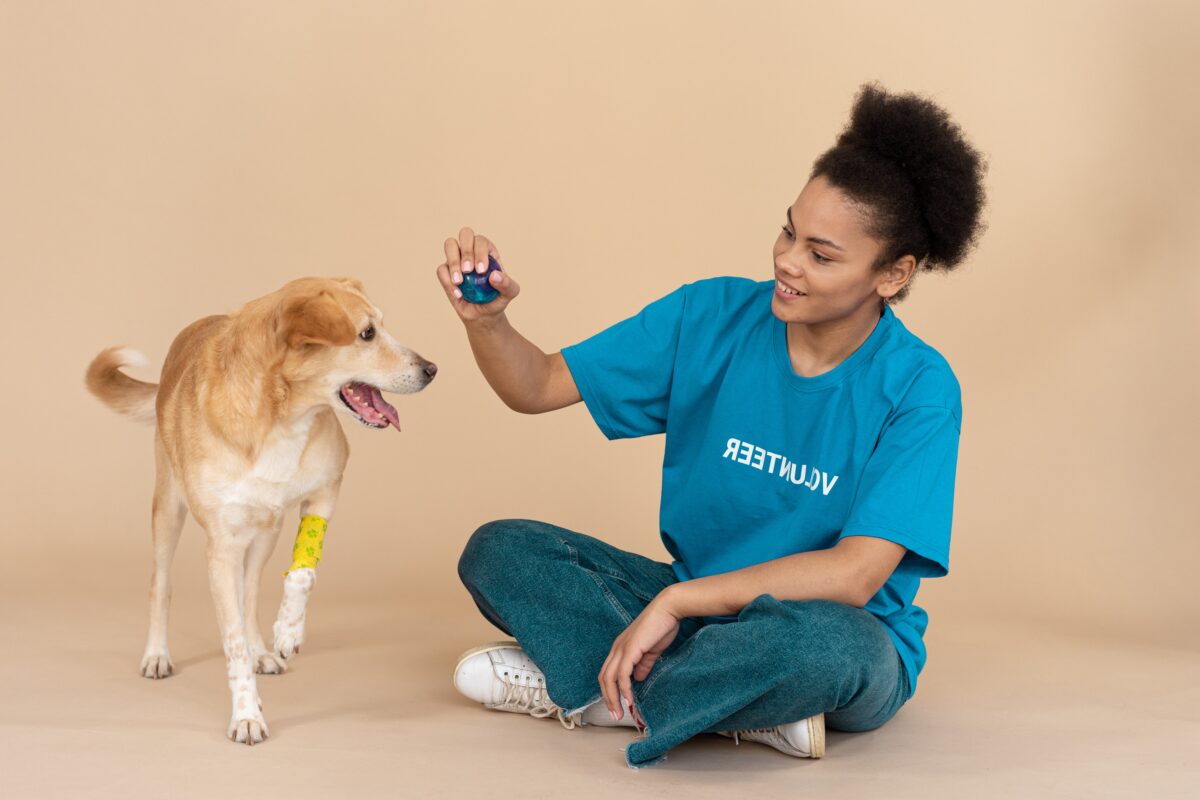Introduction
Deciding between adopting a pet from a shelter or rescue versus buying one from a breeder or pet store is an important decision for any family looking to add a new furry friend. There are many factors to weigh when choosing the best way to find your perfect companion animal. This article will explore the key considerations around pet adoption vs buying, including costs, health, behavior, breed traits, and more. With the right information and research, you can make the decision that aligns with your family’s needs, lifestyle, and values.
Benefits of Adopting a Shelter or Rescue Pet
Adopting a pet from an animal shelter or rescue organization offers many rewards beyond just saving the life of a homeless animal. Here are some of the top benefits of pet adoption:
Save a Life
There are approximately 6.5 million pets entering shelters in the U.S. every year, and sadly only about 3.2 million are adopted. When you adopt, you are quite literally saving that pet from euthanasia. Giving an animal in need a loving forever home is extremely rewarding.
Lower Costs
Adoption fees at shelters and rescues typically range from $50-$150, which covers the pet being spayed/neutered, vaccinated, and microchipped. Buying a pet from a breeder or pet store averages $500-$2000 depending on the breed. Veterinary care and supplies will be an ongoing expense either way.
Good Health
Many people assume shelter pets have more behavior or health issues, but this is untrue. Most shelters and rescues screen animals for health and temperament prior to adoption. Mixed breed dogs and cats are often healthier due to genetic diversity known as “hybrid vigor”.
Avoid Supporting Puppy Mills
Puppy mills are commercial dog breeding facilities that value profit over animal welfare. When you buy a puppy from a pet store or disreputable breeder, you may be supporting this cruel industry. Adopting helps fight puppy mills.
Give Mixed Breeds a Chance
Shelters have lovable pets of all sizes, ages, and breeds. Consider opening your home to a mixed breed dog or cat. They make wonderful companions.
Feel Good About Your Choice
There is an emotional benefit in giving an abandoned pet a second chance at a happy life. Adopting a shelter pet is extremely fulfilling.
Things to Consider When Buying a Pet
While adopting pets in need is admirable, buying from a responsible breeder or reputable pet store is still an option. Here are some things to keep in mind if going the buyer route:
Purebred Traits
If you want a purebred dog for show, sports, or working ability, a breeder may be the way to go. Research breeds thoroughly to find the right temperament and energy level for your lifestyle.
Specific Look
Some people have their heart set on a very particular coat color, size, or appearance. Purebred puppies will be more predictable in looks than mixed breeds.
Young Age
Shelter pets vary greatly in age, but buying ensures you get a puppy or kitten under a year old. This allows early training and socialization.
Health History
Reputable breeders screen breeding dogs for genetic diseases and provide health certificates. You’ll have access to parent dog pedigrees and health history.
Avoid Impulse Decision
Buying a pet makes the process more planned and controlled. Breeder waitlists prevent impulsive pet purchases that families may regret.
Adoption vs. Buying: Making the Right Choice
How do you navigate the adoption versus buying decision to end up with the ideal pet for your family? Here are some key factors to consider:
Research Breed Traits
Whether adopting or buying, thoroughly research breed characteristics and typical temperaments before choosing a pet. Consider activity levels, grooming needs, size, and behavioral tendencies.
Consider Age
Puppies and kittens require more time for housetraining and socialization. Adult and senior pets make better matches for busy families. Make sure to factor age into your decision.
Assess Time Commitment
Pets require significant time for care, training, exercise and socialization. Analyze your family’s schedule – are you equipped to meet a pet’s needs?
Weigh Lifespan
While mixed breeds often live longer, some purebred dogs have shorter life expectancies. Be prepared for a 10+ year commitment for most pets.
Allergies?
If allergies are a concern, consider hypoallergenic dog breeds like Poodles or Airedales. Sphynx cats and other hypoallergenic cat breeds may also be options.
Pet Expenses
Estimate costs of food, supplies, veterinary care, grooming, boarding, pet sitting, etc. Budget at least $500-$2000 per year for a dog or cat’s needs.
Personality Match
Meet potential pets to ensure your personalities click. Look for similar energy levels and a friendly, affectionate demeanor.
Home Environment Fit
Factor in space requirements, fencing needs, noise levels, multi-pet households, or complexes with breed/size restrictions. Make sure your home fits the pet.
Training Needs
Some breeds like Labrador Retrievers take well to training while independent cats may be harder to leash train. Assess what training you are equipped to handle.
Comparison of Pet Adoption vs. Buying
| Adopting a Pet | Buying a Pet | |
|---|---|---|
| Cost | Lower adoption fees, often $50-$150 | Higher purchase price, $500-$2000 |
| Health | Shelters screen for health issues | Reputable breeders screen breeding dogs |
| Personality | Meet pet ahead to assess personality | Breed traits more predictable in purebreds |
| Age | Varies, often adult and senior pets | Typically a puppy or kitten under 1 year |
| Training | May need to address existing behavior issues | Opportunity for early training and socialization |
| Background | Often unknown history | Access to parent pedigrees and health history |
| Supporting | Avoids supporting puppy mills | Risk of supporting puppy mills if unethical source |
| Customization | Less control over breed, appearance, age | Can select specific breed, coat, size, etc |
| Feel-Good Factor | Saving a life feels rewarding | More planned, controlled process |
This table provides a helpful at-a-glance summary of some of the key factors to weigh when deciding between adopting a shelter pet or purchasing a pet from a breeder or store. Considering costs, predictability, age, training needs, and other elements can help families make the right choice for their situation. Use this comparison as a quick reference when exploring pet adoption vs buying.
Bringing Home Your New Pet
Once you’ve weighed the adoption vs buying decision and settled on your new furry family member, it’s time to prepare for their arrival home! Here are some tips for a smooth transition:
Pet-Proof Your Home
Remove dangerous objects, secure chemicals, hide wires, and lock up medications. Provide gates/crates and designate safe spaces for your new pet to roam.
Gather Supplies
Stock up on food, bowls, bed, collar/leash, litterbox, toys, brush, carrier, etc. Buy puppy pads if housetraining. Have an ID tag made right away.
Create a Routine
Gradually introduce your new pet to regular feeding times, potty breaks, play sessions, walks, grooming, and bedtime. Consistency builds good habits.
Housetraining
For puppies and kittens, start housetraining immediately. Use crate training and frequent potty breaks to prevent indoor accidents. Reward successes!
Schedule Vet Visit
Get your new pet checked by a vet within the first week. Establish vaccine schedules and have the pet microchipped. Discuss neutering/spaying if needed.
Socialization
Safely expose your pet to new sights, sounds, people, and other animals. This prevents fearfulness and aggression later on. Go slowly and positively.
Obedience Training
Sign puppies up for reward-based obedience classes starting at 12 weeks old. Training is mentally stimulating and builds a strong human-animal bond.
Pet Insurance
Look into pet insurance to cover unforeseen accidents or illnesses. Better to be prepared, as vet bills can become expensive.
Enjoying Life with Your New Pet
The first few weeks with a new animal companion can be an adjustment period. But soon you’ll be reaping the rewards of pet parenthood. Here are some tips for living happily ever after with your adopted or purchased pet:
Involve the Kids
If you have children, teach them to gently handle, play with, and care for the new pet under supervision. Assign age-appropriate pet duties.
Multi-Pet Households
When adding a new pet to a home with existing animals, introduce slowly. Keep separated initially, then allow short supervised interactions until they acclimate.
Establish Trust
Be patient, gentle and predictable when interacting with timid pets. Let them come to you and use positive reinforcement to build a bond.
Prioritize Training
Continue reinforcing housetraining, socialization, and obedience. Use reward-based methods and be consistent. A well-trained pet is a joy.
Provide Enrichment
Give your pet mental stimulation and environmental enrichment with puzzle toys, scratching posts, dig boxes, climbing structures, etc. Prevent boredom.
Travel Together
On trips, keep your pet comfortable and secure in the car, hotel, etc. Bring along familiar items like bedding. Research pet-friendly destinations.
Handle Senior Pet Needs
As your companion animal ages, adapt to meet their changing physical and mental needs. Monitor for arthritis, reduced mobility, cognitive dysfunction, or other senior issues.
Grieve the Loss
When you inevitably outlive your pet, allow yourself to fully grieve. Create memorials, share memories, and lean on other pet lovers for support. The pain eases in time.
The Rewards of Pet Parenthood
Whether adopting or buying, bringing home a new pet is a major commitment filled with challenges but even more rewards. The unconditional love of an animal companion and forging that human-pet bond is truly priceless. Do your homework, trust your instincts, and approach pet ownership mindfully and you’ll end up with many happy years together ahead. Here’s to finding the perfect furry match for your family!
Frequently Asked Questions
Should I adopt or buy my first pet?
There’s no right or wrong choice – it depends on your specific situation. Adopting saves a life and avoids supporting puppy mills, but buying from a responsible breeder lets you select specific breed traits and history. Weigh the pros and cons carefully.
Where are the best places to adopt pets?
Check local animal shelters, humane societies, and breed-specific rescue groups. Petfinder.com also lets you search adoptable pets in your area by breed, age, size and more.
What questions should I ask a breeder or shelter?
Ask about genetic health testing, parent pedigrees, breed traits, past behavior issues, reasons for surrendering, etc. Get as much background as possible to ensure it’s a good match.
How much exercise does a dog or cat need daily?
Most dogs need 30-60 minutes of activity per day. High energy breeds require more. Cats are usually satisfied with 15 minutes of play per day, but enjoy additional enrichment. Adjust to your pet’s individual needs.
How can I find pet-friendly housing?
Some tips are to search sites like BringFido.com, check municipal breed/size restrictions, look for private landlords, offer pet deposits, or provide vet references. Be open about having pets.


